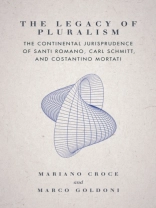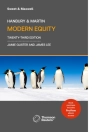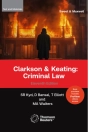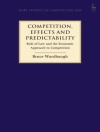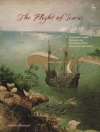How should the state face the challenge of radical pluralism? How can constitutional orders be changed when they prove unable to regulate society? Santi Romano, Carl Schmitt, and Costantino Mortati, the leading figures of Continental legal institutionalism, provided three responses that deserve our full attention today. Mariano Croce and Marco Goldoni introduce and analyze these three towering figures for a modern audience. Romano thought pluralism to be an inherent feature of legality and envisaged a far-reaching reform of the state for it to be a platform of negotiation between autonomous normative regimes. Schmitt believed pluralism to be a dangerous deviation that should be curbed through the juridical exclusion of alternative institutional formations. Mortati held an idea of the constitution as the outcome of a basic agreement among hegemonic forces that should shape a shared form of life.
The Legacy of Pluralism explores the convergences and divergences of these towering jurists to take stock of their ground-breaking analyses of the origin of the legal order and to show how they can help us cope with the current crisis of national constitutional systems.
Tabella dei contenuti
Introduction
1. Legal Theory as a Discipline and the Trouble with Pluralism
2. Santi Romano and the Juristic Point of View
3. Carl Schmitt and the Concrete Order
4. Costantino Mortati and the Material Constitution
5. Pluralism and Order: Two Interpretative Axes
Conclusion
Circa l’autore
Mariano Croce is Associate Professor of Political Philosophy at the Department of Philosophy of Sapienza Università di Roma.
Marco Goldoni is Senior Lecturer in Legal Theory at the Law School of the University of Glasgow.
